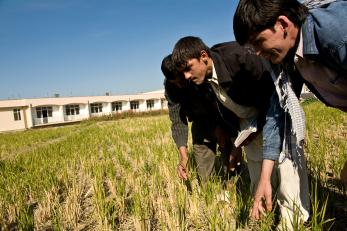Building Resilient Food Systems through Agroecological Principles and Practices

Improving smallholder agricultural productivity holds great potential to address poverty, improve household food security and build resilience. At the same time, intensified production and increased profits are sometimes achieved through strategies that modify and intensify the utilization of natural resources. This may result in numerous environmental externalities, including: land degradation, decreasing water tables and quality, loss of agro-biodiversity and the environmental and health impacts of inappropriate fertilizer and pesticide use. These potential longer-term costs to households, to the agroecosystem, and to food security, nutrition and health are rarely accounted for in the market analysis and business models used to design agriculture programs. Applying a resilience lens to food system analysis and programming requires that we pay particular attention to the interactions between key components or subsystems - recognizing that shocks, stressors and even interventions themselves that impact one part of the food system can have additional impacts or unintended consequences on other system components, and potentially, the entire system.
Agroecology provides a unique and useful lens for facailitating mutually supportive interactions between household livelihood strategies, the ecological health of the farm systems and broader food systems. The natural asset base of smallholder farmers is their most valuable asset, and building wealth over time depends on maintaining and building this resource. An agroecological approach applies principles and practices that protect longer-term absorptive and adaptive capacities of the agroecosystem and regenerates farmers' natural assets rather than depleting them - thus aiming for optimal productivity and long-term food security and well-being.
This paper is meant to elevate the discussion around the numerous threats to food systems and the potential opportunities for leveraging agroecology to build resilience of smallholder farmers and the agroecosystems they depend on.
Download the report ▸